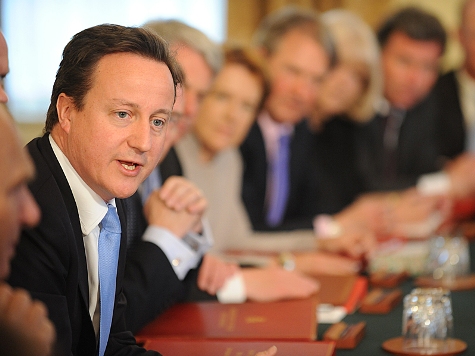
One of the biggest consistent drivers for people to vote Conservative is that it has always been the anti-taxation party, believing by core ideology that tax is a vexatious barrier to prosperity, or at best a necessary evil that should be cut with every year the Tories remain in power.
There has been an almost schizophrenic development in the modern Conservative Party however, (apparently led by a “low tax conservative”) which suggests that the greatest sin an individual can commit in modern Britain is avoiding tax; not evading, avoiding.
As a conservative and a member of the relatively sane community, I say of course everyone should avoid tax wherever possible. As much as finding value in any transaction, it would surely be irresponsible to your business, family or personal finances not to do so.
The Prime Minister commented this week on the continuing media circus around Gary Barlow’s private tax affairs that: “We should be very clear: tax evasion is illegal, you can be prosecuted for that, you can go to prison.”
Perfectly reasonable – but Gary Barlow hasn’t evaded tax, he has allegedly avoided tax.
On that point the Prime Minister had this to say: “Tax avoidance is, in these cases, these very aggressive tax avoidance schemes, they are wrong and we should really persuade people not to do them and that’s why we have these court cases.”
The Government is straying onto dangerous ground for a myriad of reasons in pursuing tax avoidance so strongly. It seems bizarre, for example, that Cameron would criticise Gary Barlow for avoiding tax and defend Maria Miller for abusing her expenses.
But fundamentally the suggestion that there is any immorality in avoiding tax assumes that tax, in its collection and subsequent redistribution, is an indisputably moral act. It isn’t.
The state is no more a moral distributor of wealth than an individual citizen, and aside any state-imposed moral imperative, the heavy taxation of Britain’s wealthiest citizens is neither to the net benefit of our economy.
It shouldn’t matter who you are and what you do in Britain, all that should matter is whether you are a net benefactor or a net detractor to society and the nation. Any public anger should be directed solely at those who consistently detract from our country, be they on a bonus, or on benefits.
I applaud this government in taking the lowest earners out of tax, but the reality is that it is the top 25 percent of earners that pay 75 percent of national taxation. The fairest tax system would therefore be to charge the highest earners a lower percentage of their income, because they will always pay and contribute more, and likely use far fewer public services.
That we are pursuing people through the courts for the legal act of tax avoidance adds insult to injury, and is the behaviour of an increasingly overbearing state that now also reserves the right to remove money from any bank account at the Exchequer’s whim.
Perhaps unsurprisingly I am not a fan of Gary Barlow, I remain unclear as to why he was placed in charge of the Queen’s Diamond Jubilee celebrations, and I am equally sceptical as to the value of his and other celebrities’ photo-op “support” for the Conservative Party. But the inconvenient truth is that he has probably created more wealth for the United Kingdom than most of us could ever hope to, which surely puts almost all of his critics, including the Prime Minister, in a somewhat hypocritical position.
Critics of his tax affairs, and those like me who are critical of his talents, have to accept that he has done a great deal for the British economy, and surely deserves to keep all of his rewards for doing so.

COMMENTS
Please let us know if you're having issues with commenting.